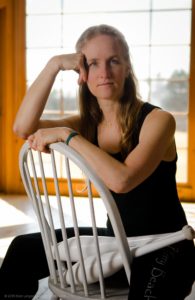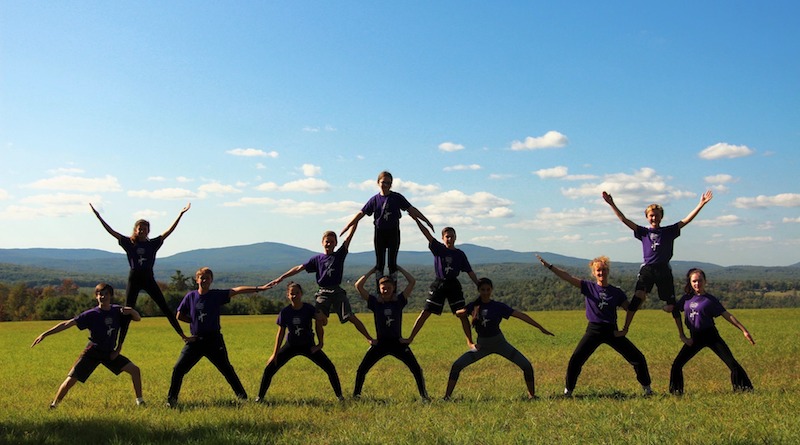Exploring Self-Determination Through Circus Arts: New Research
A new research project has been published titled Self-Determination Through Circus Arts: Exploring Youth Development in a Novel Activity Context by Jacqueline Davis and Dr. Jen Agans. Both Agans and Davis have a lifetime of circademic and circus experience between them and equally share a love of working with youth circus. Dr. Jennifer P. Agans is an assistant professor of recreation, park, and tourism management at the Pennsylvania State University. Her research focuses on youth experiences in sport and other out-of-school time physical activity contexts and the links between these experiences and positive development and health across the life span. In this work, she also collaborates with practitioners, including Positive Coaching Alliance, the American Circus Educators / American Youth Circus Organization, and New York State 4-H, to evaluate youth programs and understand their impact on participants.
Jacqueline Davis is a circus education pioneer, teacher and author (DIY Circus Lab for Kids.) She is a founder of the American Youth Circus Organization and has created three youth circus programs in southern New Hampshire. She earned a master’s degree in human development and psychology from the Harvard Graduate School of Education. As a doctoral student at the University of British Columbia, Davis researched the effects of circus arts on cognitive, physical, and social-emotional development in youth. She has presented her work at academic and circus conferences in the US, Canada, and Finland.
They explain the impetus behind their research:
Kim Campbell: Can you tell us a little about what prompted your research idea? Can you give us a brief description of your findings?

Jacqueline Davis: Jen Agans and I are longtime circademics, meaning that we geek out on scientific evidence that illustrates how circus arts benefit youth development. However, there was (and still is) a great need for more evidence about the effects of circus. At the time of this study (2013), Jen was pursuing her doctorate at Tufts and I was a doctoral student at the University of British Columbia. When a national youth circus festival came up (produced by the American Youth Circus Organization/AYCO), we knew there would be some 200 youth circusers at SANCA Seattle, and they would be a great source of information about their own circus experiences. We figured we should ask them some questions, and map their responses onto existing validated measures of positive youth development and self-determination, and see what the data told us. Happily, the board of AYCO supported our proposal 100% and gave us the green light.
So we put together a questionnaire, got permission from the Institutional Review Board to study human subjects, gathered consent/assent from our participants, and disseminated the questionnaire both at the Festival and online. We were thrilled that 111 subjects participated! Then came the chore of cleaning and analyzing the data and looking at what we had. Together with one of my UBC supervisors (Dr. Tal Jarus), and an expert in self-determination theory in physical activity (Dr. Spyridoula Vazou), we discovered that, in fact, we had some new findings to contribute to the self-determination literature. Dr. Jen then spent a couple years revising the document and hunting down the right journal to publish our paper. Ta-da — she did it, and now we are published! (And there was much rejoicing!)

Dr. Jen Agans: A lot of research has looked at associations between participating in different types of physical activity and out-of-school time programs and youth development outcomes. One of the factors that has been shown to be beneficial in these contexts is support for the basic psychological needs for autonomy, competence, and belonging; when these needs are supported, people are more likely to be intrinsically motivated and more likely to thrive. We studied the connections between support for these needs in circus programs and a wide range of youth development outcomes by surveying 111 youth participating in circus arts programs (62% female, ages 10 to 21). In some ways, our findings paralleled prior work in other contexts: psychological need support in circus programs predicted positive developmental outcomes for youth. However, we also found that, although feeling a strong sense of belonging has been found to be less important than feeling autonomous and competent in many physical activity contexts, having a sense of belonging was the strongest predictor of intrinsic motivation, affect, and positive youth development in our sample of youth circus participants. These results support the idea that circus is a unique physical activity context because of its cooperative and inclusive nature.
Related content:DIY Circus Lab for Kids— A New Book By Circademic Jackie Leigh Davis
Feature photo The Flying Gravity Circus. Photo credit: Tamra Biedrzycki
...
Do you have a story to share? Submit your news story, article or press release.



